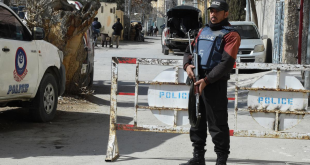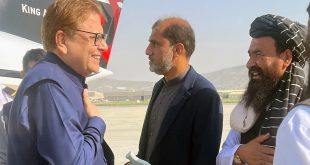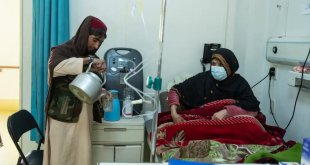AT News Report
KABUL: The Afghan Ministry of Refugees and Repatriation said Monday that 3.225 million Afghans returned home, but 2.291 million others left for other countries from 2012 to 2018.
Sayed Hussain Alemi Balkhi, the Minister of Refugees and Repatriation, during a press conference, publicized the findings of Baseline Mobility Assessment, which was conducted in collaboration with United Nation International Organization for Migration (IOM).
“The overall objective of the DTM Baseline Mobility Assessment in Afghanistan is to track mobility and displacement,” said Laurence Hart, the country director of IOM. “The DTM provide population estimates, locations and geographic distributions of displaced, returned and migrant population as well as refugees, nomads, cross-border tribal groups and both domestic and international labor migrants.”
Minister Alemi Balkhi said the findings of DTM showed as many as 3.225 million refugees returned home from 2012 to 2018, while 2.291 million people left Afghanistan to seek asylum and immigrate abroad. Out of 2.291 million, 271,000 people have sought asylum in European countries.
Balkhi added that 3.529 million countrymen were internally displaced due to the widespread conflict, drought and poverty. Out of the total of seven million internally displaced and returnees, 266,000 lived in harsh condition, which their shelters were tents.
Balkhi concluded that the number of returnees was more than those who left the country. He called it a “positive point”, saying people were interested in their own country.
Afghanistan’s bloody history drove millions of Afghans out of their homes over the last 40 years. The countrymen settled mostly in Iran, and Pakistan, where they were largely banned to seek formal education and working.
In the country, the widespread combat between the government security forces and the Taliban insurgents displaced thousands countrymen. Most of the internally displaced people were deprived from their very basic rights of having shelter, and having access to clean water. Children make up many of the displaced people who were deprived of receiving primary education.
 Afghanistan Times
Afghanistan Times




